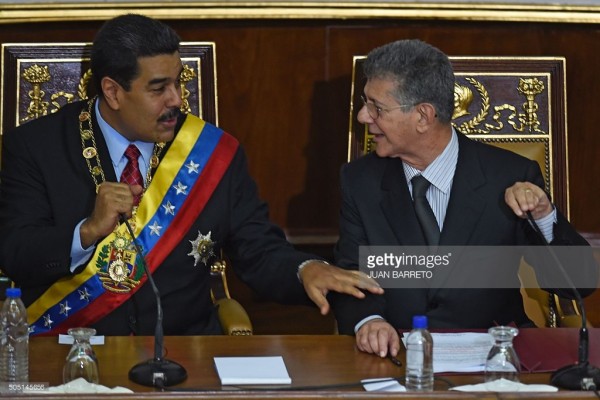
Venezuela’s opposition-led congress on Friday rejected President Nicolas Maduro’s request for emergency powers amid a plunging national economy, the depths of which were dramatized by an IMF estimate that inflation this year will top 700 percent.
Ruling party and opposition lawmakers accused each other of trying to run the country into the ground in the first major congressional debate Venezuela has seen in more than a decade. Critics of the socialist revolution kicked off by late President Hugo Chavez took control of congress last month for the first time in 17 years.
Maduro had proposed an economic emergency decree that would give him expanded authority for 60 days. In the past, when it was dominated by first Chavez’s and then Maduro’s allies, congress made a habit of approving these kinds of exceptional powers.
The opposition argues that Maduro is responsible for raging inflation and chronic shortages dogging daily life here, and is promising to oust him within six months.
The debate took place against the backdrop of more grim economic news as the International Monetary Fund predicted that inflation in Venezuela would more than double in 2016, reaching 720 percent.
The South American nation already suffers from the world’s highest inflation and a crushing recession. The IMF estimates that prices rose 275 percent last year in Venezuela, while the economy contracted by 10 percent.
Ahead of the final vote on his decree, Maduro announced he had approved a change that will allow the country’s small export sector to use a more favorable currency exchange rate. He scolded opposition activists for “turning their back on the country.”
“They’re bent on the politics of sterile confrontation,” he said as state television began promoting the slogan “irresponsible opposition.”
Opposition leaders rejected the decree as a trap intended to make them look intransigent and unwilling to fix the economy.
“We’re not closing any doors. On the contrary, today we opened the door to a serious discussion,” majority leader Julio Borges said. “We’re not looking to double down on the same policies that got us into this crisis. What we need is real change.”
EUROASIA VIEW

Leave a Reply
You must be logged in to post a comment.